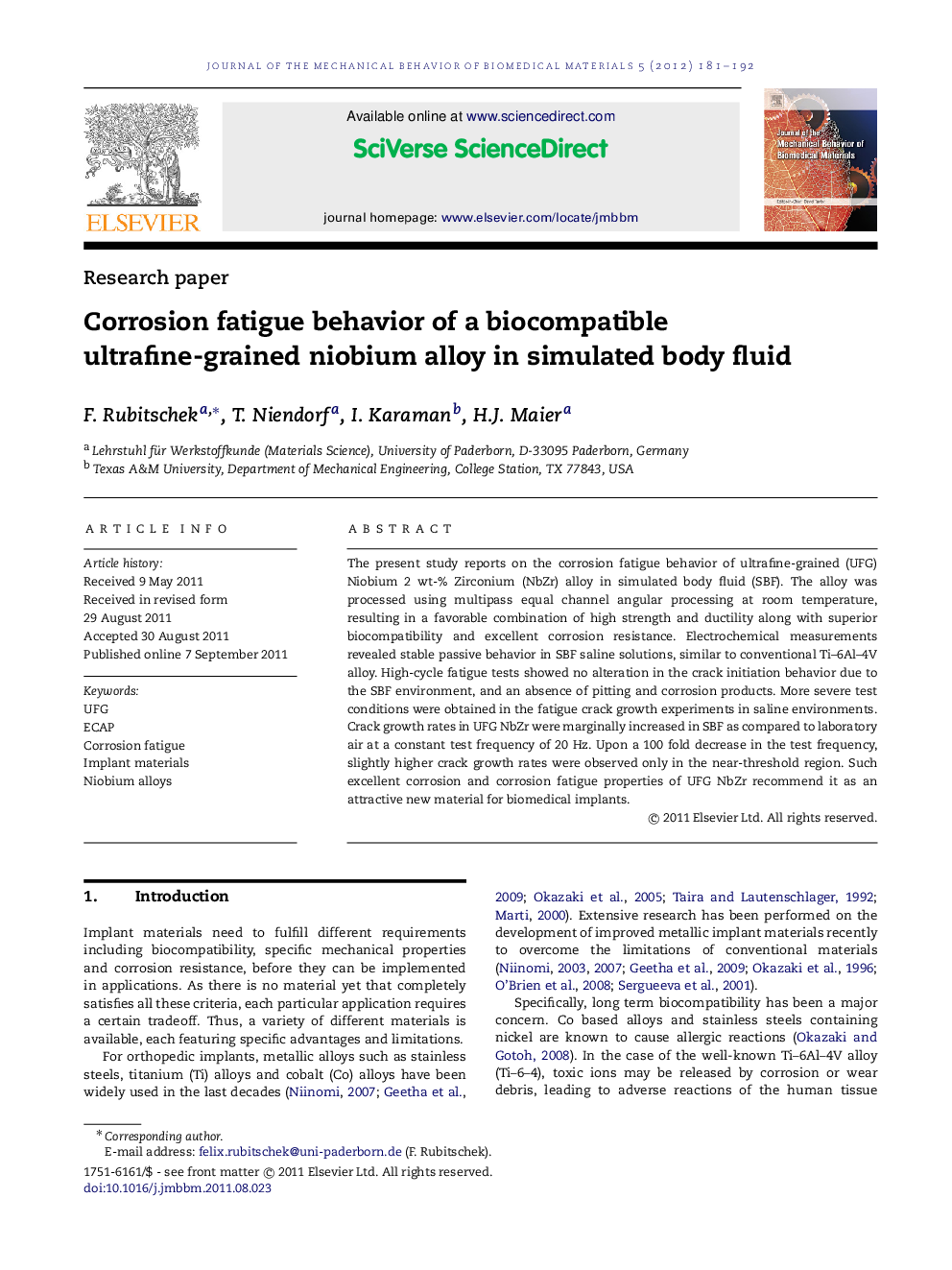| Article ID | Journal | Published Year | Pages | File Type |
|---|---|---|---|---|
| 811195 | Journal of the Mechanical Behavior of Biomedical Materials | 2012 | 12 Pages |
The present study reports on the corrosion fatigue behavior of ultrafine-grained (UFG) Niobium 2 wt-% Zirconium (NbZr) alloy in simulated body fluid (SBF). The alloy was processed using multipass equal channel angular processing at room temperature, resulting in a favorable combination of high strength and ductility along with superior biocompatibility and excellent corrosion resistance. Electrochemical measurements revealed stable passive behavior in SBF saline solutions, similar to conventional Ti–6Al–4V alloy. High-cycle fatigue tests showed no alteration in the crack initiation behavior due to the SBF environment, and an absence of pitting and corrosion products. More severe test conditions were obtained in the fatigue crack growth experiments in saline environments. Crack growth rates in UFG NbZr were marginally increased in SBF as compared to laboratory air at a constant test frequency of 20 Hz. Upon a 100 fold decrease in the test frequency, slightly higher crack growth rates were observed only in the near-threshold region. Such excellent corrosion and corrosion fatigue properties of UFG NbZr recommend it as an attractive new material for biomedical implants.
► Ultrafine-grained NbZr alloy exhibits high strength and ductility. ► Excellent corrosion resistance in simulated body fluid is shown. ► High-cycle fatigue tests did not reveal accelerated crack initiation in simulated body fluid. ► Fatigue crack growth rates are not significantly altered by saline environment.
